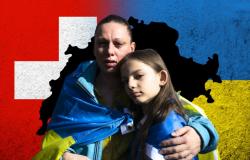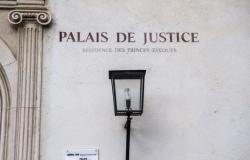Dakar, Jan 24 (APS) – The Ministry of Communication, Telecommunications and Digital Affairs and the National Audiovisual Regulatory Council (CNRA) organized, Friday, a workshop to share the preliminary draft law establishing creation of a new independent media regulatory authority with broader powers.
The opening ceremony of this meeting held at the Administrative Building was chaired by the Minister of Communication, Telecommunications and Digital Affairs, Aliou Sall, and the President of the CNRA, Mamadou Oumar Ndiaye.
Representatives of the Presidency of the Republic, the Prime Minister’s Office, the General Secretariat of the Government, the Ministries of Justice, the Interior, journalists’ organizations and press employers, among others, took part in the meeting .
The future independent administrative authority will integrate all types of information and production media, physical and digital, broadcasting content intended for the general public.
According to the Minister of Communication, ”the main objective is to reach a consensus on the major orientations of legislation which integrates all broadcast media, whether physical or digital, while guaranteeing quality content that respects ethical standards and the right to information.
Aliou Sall estimated that in the absence of effective regulation, ”digital platforms, social networks and artificial intelligence can also be sources of serious threats due in particular to the proliferation of hate speech, distrust , disinformation, manipulation and social, political and economic destabilization, harmful to all.
For his part, the president of the CNRA, Mamadou Oumar Ndiaye, welcomed “the idea of broadening the skills of the future regulatory body to digital platforms but also to the written and online press”, stressing that no media, ”including digital platforms, should not escape regulation”.
According to the terms of reference of the workshop, ”the Senegalese media landscape is characterized by the plurality and diversity of communication media ranging from the written press to online media, including public and private television, private radio commercial and community”.
The document notes that ”the rapid development of the sector and the technological changes which accompany it have facilitated rapid and abundant access to audiovisual services on demand, and favored the instantaneous diffusion and reception of media content thanks in particular to online media. line”.
-However, notes the same source, ”the explosion of digital media and radio and television broadcasts, as well as the multiplication and diversification of written press organs, although contributing to the democratization of access to information, are sometimes accompanied by slippage and contribute to conveying misleading information, especially during sensitive periods.
She believes that ”misuse of digital or traditional media can thus be a source of disinformation and the propagation of hateful content, which fuels conflicts and threatens social cohesion”.
Although Senegal has a series of laws on the media sector, they only apply to specific areas concerning press companies, professions or media content.
Created in 2006, the National Audiovisual Regulatory Council (CNRA) does not take into account all media supports. And the High Regulatory Authority for Audiovisual Communication (HARCA), created on the basis of the Press Code, replacing the CNRA, also showed its limits before it really took shape.
Taking into account the evolution of the sector and the need to effectively regulate the production and distribution of media content in a context marked by the preeminence of digital technology, the public authorities have initiated a bill relating to the creation of a new independent administrative authority for media and digital regulation.
This will involve ”consolidating the draft bill on HARCA by integrating all types of information and production media, physical and digital, disseminating content intended for the general public”.
This Friday’s meeting marks the launch of a process leading to the drafting of a final text, which will be submitted to the government and then to the National Assembly.
OID/ABB/ASB/SKS





